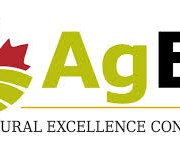Accounting, You Get What You Pay For
I am NOT an accountant. Let’s put that on the table right away.
“Do what you have to do so I don’t pay any tax, or at least as little as possible. And nothing fancy is
needed from you, just the basics; keep your fee small.”
Sound familiar? If you’re an accountant, I’m sure you’ve heard this far more than you’d like. If you’re a
business person (in the BUSINESS of FARMING) and you’ve said something like this to your accountant, I
hope this leads you to change.
The work your accountant does in preparing quality historical reporting will provide you, the CEO of your
business, with tools to evaluate actual results against expected results.
What do you mean you look at this info for 10 minutes, forward a copy to the bank, and then file it? I’m
a huge proponent of looking forward (future planning), but if you don’t look back once in a while to
gauge performance, you’re probably going to repeat some mistakes from the past.
A comparison of results year over year and setting trend lines of results can be telling. But this can’t be
done accurately without accruing your statements. Let’s put this in perspective: you sold some 2013
crop in 2014, and carried some 2014 crop into 2015, right? This isn’t unusual, nor is it a bad idea. We
should manage the timing of our grain sales to match our cash requirements. But for the purposes of
evaluating your farm’s financial success in a given year, the grain carryover skews the reporting. Here’s a
way to fix that: accrue your financials!
It’s not a lot of work. All you need to do is assemble your:
- grain inventory values
- total prepaid expenses (like fertilizer, chemical, and seed)
- accounts receivable
- deferred cheques
- accounts payable
Provide these to your accountant as they were on the last day of your fiscal year (and for the prior year
if you’ve never done this before.) You have to provide all of this to the bank anyway (or Agri-Stablilty,)
so there really is no extra work on your part.
Before anyone gets all panicky, I’m not suggesting you file your taxes on an accrual basis. Farmers can
still file on cash, so keep that up. Cash reporting for taxes. Accrual reporting for analysis.
Direct Questions
Do you view your accountant as a “necessary expense” or as a “strategic advisor” to your business?
Do you use your financial reporting to analyze actual results against projections?
Is the $2,000 you’re trying to save by “going cheap” with accounting worth the $1-2 million in financing
you WON’T get because your bank has “minimum reporting expectations” in order to approve credit?
Are you currently having your financial statements accrued? If not, please start now. A December 31
year-end can still be accrued. (So can historical statements if you have the info.)
If you don’t measure it, how can you manage it?
From the Home Quarter
Think about all the tools in your shop. Which one is your favorite? Could you see trying to get through a
major task without it? When you’re buying tools, do you shop at Wal-Mart, or do you buy Snap-On?
Your financial statements are just as valuable of a tool. And like any tool, its value is only evident when
you’re using it, not when it’s sitting on the shelf. Are you viewing your accountant like “Wal-Mart” or
like “Snap-On” based on the kind of “tool” you’re asking them to provide? And remember your
responsibility in creating quality reporting; the G-I-G-O rule applies. It’s up to you to provide your
accountant with thorough and clear information.












Leave a Reply
Want to join the discussion?Feel free to contribute!